MICHAEL JACKSON
by Courier Newsroom
Week of June 19-25
June 19
1865—The Juneteenth Celebration begins. June 19, 1865 marks the day that many Blacks actually became free, especially those in Texas. Even though the Emancipation Proclamation technically freed all slaves in 1863, slavery actually continued in Texas until the end of the Civil War. It was not until June 19, 1865 that many slaves learned they had been freed. They called the day of freedom “Juneteenth.” It is normally marked with picnics, barbecues and commemorations. In 1980, the day became an official holiday in Texas.
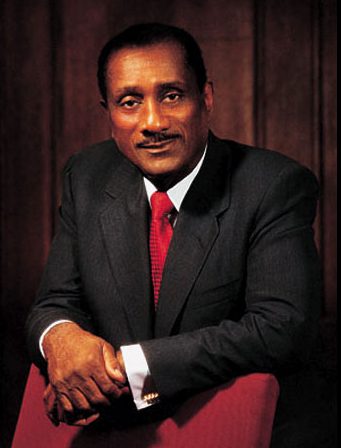
1918—Ebony and Jet magazines founder John H. Johnson is born in Arkansas City, Ark. He moved to Chicago to build his publishing empire. Johnson was the first African-American to appear on the Forbes magazine list of 400 richest Americans with an estimated wealth of $500 million. Johnson died in August 2005. However, both magazines are now in financial trouble.
2009—The U.S. Congress issues a formal apology to Black Americans for the slavery of their ancestors. The resolution acknowledged the “fundamental injustice, cruelty, brutality and inhumanity of slavery and Jim Crow laws” which followed slavery. However, the resolution specificly rejected paying Blacks reparations for past, discrimination, mistreatment and brutality.

June 20
1871—The first anti-Ku Klux Klan trials begin in Oxford, Miss. The trials were part of an effort begun by President Ulysses S. Grant to crush the Klan, which was populated by defeated Confederate soldiers from the Civil War and which was becoming increasingly powerful throughout the South. In Mississippi, White doctors, lawyers and even ministers were indicted for violating Black rights and conspiring against the U.S. government. More than 900 were indicted in Mississippi and 243 convicted. Similar trials took place throughout the South—most notably in South Carolina and North Carolina. Grant’s efforts succeeded in crushing the terrorist organization and it would not rise again until 1915.
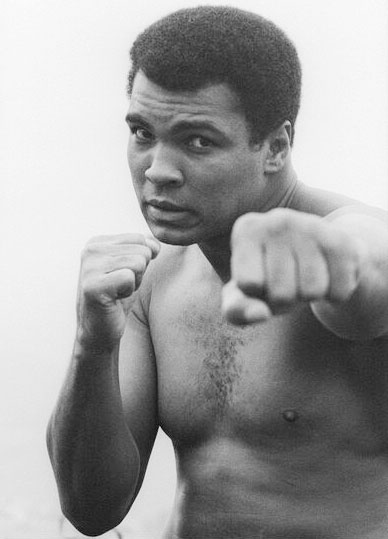
1967—Boxing champion Muhammad Ali is convicted in a Houston, Texas, federal court of violating the Selective Service Act by refusing to be inducted into the armed services. He was fined $10,000 and given five years in prison. The United States Supreme Court would later overturn the conviction. Ali’s refusal to be inducted was based, in part, on his opposition to America’s war in Vietnam. He often said, “No Vietnamese ever called me N**ger.”
June 21
1832—Joseph Haynes Rainey, the first African-American to serve in the United States House of Representatives, is born in Georgetown, S.C. He was elected in 1870 from the state of South Carolina. He served five terms in Congress and died in 1887. In 2005, a portrait of Rainey was finally hung in the U.S. Capitol Building.
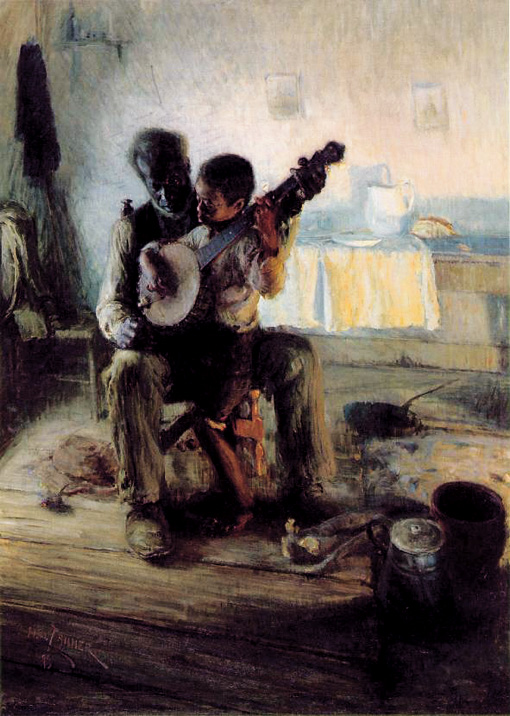
1859—Henry O. Tanner, the first African-American painter to achieve international acclaim, is born in Pittsburgh, Pa, to a middle class Black family. His most notable work was “The Banjo Lesson,” which he painted in 1893. Tanner would later teach at Clark University in Atlanta, Ga. Tanner was considered a formalist—meaning his paintings tended to be beautiful depictions of reality. He died in May 1937.
1915—The United States Supreme Court declares in the Guinn v. United States case that “grandfather clauses” in many Southern state constitutions and laws were illegal. The case grew out of the practice, common in the South, of setting up stringent requirements in order to prevent Blacks (former slaves) from voting. But in order to ensure that Whites could vote, the laws exempted them from the difficult requirements by asserting that anyone (or his grandfather) who could vote prior to 1867 did not have to meet the tough standards. Since virtually no Blacks could vote prior to 1867, “grandfather clauses” had the effect of denying Blacks the right to vote.

1964—Three civil rights workers (Andrew Goodman, James Chaney and Michael Schwerner) disappear near Philadelphia, Miss., and are later found murdered. Seven Ku Klux Klan members, opposed to a Black voting rights campaign, were indicted for the killings, but none served more than six years in prison. The incident became one of the major sparks to the then young Civil Rights Movement. Justice for the three was finally completed in June 2005 when the leader of the group of Klansmen—Edgar Ray “The Preacher” Killen—was convicted of their murders. Ironically, Killen was convicted on June 21, 2005—41 years to the day that Goodman, Chaney and Schwerner were killed. Even more ironic, in May 2009, Philadelphia, Miss., elected its first Black mayor.
June 22
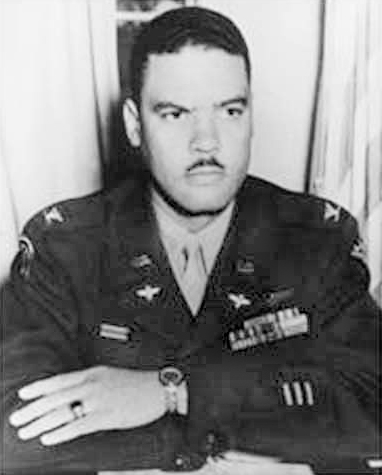
1863—The War Department establishes the Bureau of Colored Troops and began to aggressively recruit Blacks for the Civil War. The Black troops would play a major role in turning the tide of battle against the rebellious Southern slave states.
1959—Benjamin O. Davis Jr. becomes the first African-American general in the U.S. Air Force. His father, Benjamin O. Davis Sr., had been the first Black general in the U.S. Army.
1966—Entertainer Bill Cosby becomes the first African-American to receive an Emmy for Best Actor in a dramatic series—for his role in the 1960s television series “I Spy.”

June 23
1921—“Shuffle Along”—the first of a succession of widely popular Black musicals performed for White audiences—opened at the 63rd Street Theatre in New York City, becoming the first African-American Broadway musical. The musical comedy combined the talents of the legendary team of Eubie Blake and Noble Sissle. “Shuffle Along” produced a long list of hits including “Shuffle Along,” “I’m Just Wild about Harry,” “Gypsy Blues” and “Love Will Find A Way.”

1981—Legendary Reggae artist Bob Marley is given an official state funeral in his homeland of Jamaica. He had died of cancer on May 11 in Miami. Marley and his band “The Wailers” had made Reggae popular worldwide with such hits as “Stir It Up” and “No Woman, No Cry.” He was considered the first third-world superstar and a prophet of the Rastafarian religion. He was only 36 when he died. His body now lies in a mausoleum in Jamaica.
June 24
1854—Anthony Burns, one of the most celebrated fugitive slaves in American history, is captured by deputy U.S. Marshals in Boston. But at the time anti-slavery feeling was running high in Boston and it was one of the cities which had vowed not to obey the Fugitive Slave Act—a federal law that required even those opposed to slavery to help slave owners capture run-away slaves. For fear that Boston residents would help Burns escape to Canada, the U.S. government sent 2,000 troops to Boston to assist in returning Burns to Virginia. Thousands lined the streets as Burns was marched to a ship on June 3 for a trip back South. However, a Black Boston church raised the money to purchase Burns and within a year of his capture, he was back in Boston a free man.
1856—The so-called Pottawatomie Massacre takes place. A force of men led by famed abolitionist John Brown attacks a pro-slavery settlement in Franklin County, Kan., leaving at least five men dead. The attack was part of a period known as “Bleeding Kansas” when pro and anti-slavery forces battled one another in a bid to determine whether Kansas would be a slave or free territory. The “Pottawatomie Massacre” was also one of the events which made the Civil War unavoidable.

1944—Legendary singer Patti LaBelle is born Patricia Louise Holte in Philadelphia, Pa.
June 25
1773—Massachusetts slaves petition for their freedom. As a result of the petition, a bill ending slavery in the state was actually drawn up and passed by the legislature. But the governor refused to sign it and there were not enough votes to override his veto.
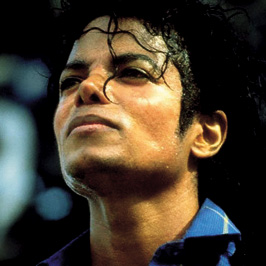
1941—President Franklin D. Roosevelt issues Executive Order #8802 banning racial discrimination in the nation’s war industries on the eve of America’s involvement in World War II. The order came as a result of pressure from Black labor leader A. Phillip Randolph who had threatened a massive “March on Washington” to protest discrimination by the military and the military industry.
1968—Lincoln Alexander becomes the first Black member of the Canadian parliament.
2009—Pop music superstar Michael Jackson dies of cardiac arrest in his Los Angeles home after reportedly being given a powerful sedative (Propofol) to help him sleep. Jackson was 50 years old and was in the process of preparing a major comeback tour. His doctor Conrad Murray was charged and found guilty of manslaughter in the case.
Like us at https://www.facebook.com/pages/New-Pittsburgh-Courier/143866755628836?ref=hl
Follow @NewPghCourier on Twitter https://twitter.com/NewPghCourier